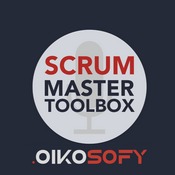Lai-Ling Su: The Explicit and Implicit Layers of Unclear Decision Rights
Read the full Show Notes and search through the world's largest audio library on Agile and Scrum directly on the Scrum Master Toolbox Podcast website: http://bit.ly/SMTP_ShowNotes.
The Great Product Owner: Building Impactful Relationships That Get Things Done
"What made her great was the fact that she focused not just on her technical prowess, but on the people, politics, and the performance side of product. And she used that to turn ambition into reality, and she used that to move strategy to execution." - Lai-Ling Su
Lai-Ling describes a phenomenal product owner she worked with about 12 months ago. This woman wasn't just technically strong—she was a leader whose team of 10 loved her because she mentored them to be as strong or stronger than herself.
The business loved her because she was exceptionally commercial, thinking about customer value, revenues, expenses, profit models, and marketing long before anything was built. She held everyone true to doing the right thing even when pressure mounted. The executive team loved her because her greatest strength was building solid, impactful relationships that transcended boundaries.
She removed the us-versus-them mentality, broke down departmental silos, handled politically charged scenarios, negotiated with difficult personalities across technology, legal, compliance, sales, and operations. She removed impediments responsively and got stuff done when others couldn't. Her secret was focusing on people, politics, and performance—not just technical prowess.
In this episode, we refer to Esco Kilpi's work on interactive value creation, which describes how value in knowledge organizations is created through ongoing conversations—not just meetings, but emails, wiki pages, and corridor conversations that steward decisions over time.
Self-reflection Question: How deliberately are you investing in building relationships that transcend your immediate team and department?
The Bad Product Owner: Unclear Decision Rights
"Does your head of product know that he has the rights and the authority to make the types of decisions that you want him to?" - Lai-Ling Su
The anti-pattern Lai-Ling encounters most persistently is unclear decision rights. She illustrates this with a story about a GM in a multinational who effectively worked as a chief product officer. His biggest complaint was that his head of product kept coming to him for decisions that should have been made independently—even though he'd been given $10 million a year to run his teams.
When Lai-Ling asked one simple question—"Does your head of product know he has the authority to make these decisions?"—the GM sat in shocked silence for a full minute. But the pattern runs deeper: there's the assumption that people know their decision rights, there's knowing your rights but not knowing how to make those decisions, and there's knowing your rights but getting trumped every time you try, leading to learned helplessness.
Some product owners have never learned to make decisions because they always defer to someone who seems better at it. There are both explicit and implicit unclear decision rights—you might tell someone they have authority while implicitly sabotaging their decisions.
Self-reflection Question: Have you explicitly confirmed with your stakeholders what decisions you have the authority to make—and are those decisions being respected in practice?
[The Scrum Master Toolbox Podcast Recommends]
🔥In the ruthless world of fintech, success isn't just about innovation—it's about coaching!🔥
Angela thought she was just there to coach a team. But now, she's caught in the middle of a corporate espionage drama that could make or break the future of digital banking. Can she help the team regain their mojo and outwit their rivals, or will the competition crush their ambitions? As alliances shift and the pressure builds, one thing becomes clear: this isn't just about the product—it's about the people.
🚨 Will Angela's coaching be enough? Find out in Shift: From Product to People—the gripping story of high-stakes innovation and corporate intrigue.
Buy Now on Amazon
[The Scrum Master Toolbox Podcast Recommends]
About Lai-Ling Su
Lai-Ling fixes the gap between operating model design and real-world delivery through her interim executive, consulting, capability building, and executive coaching work. She also equips product and transformation leaders with the capability everyone expects but no one teaches - how to navigate the people, politics, and performance expectations that come with their jobs.
You can link with Lai-Ling Su on LinkedIn.



